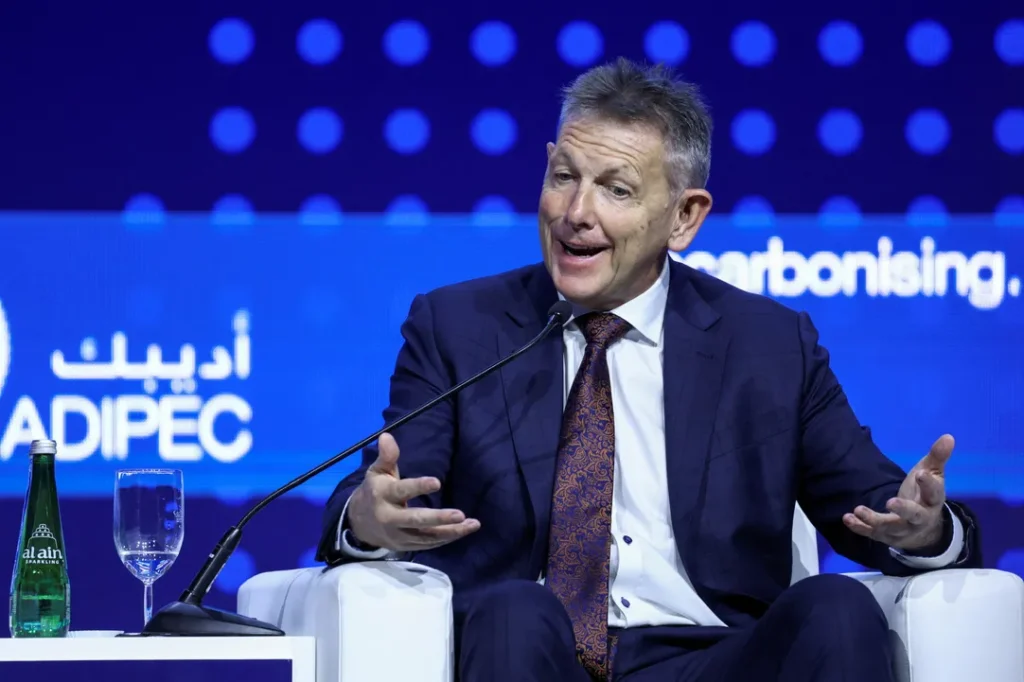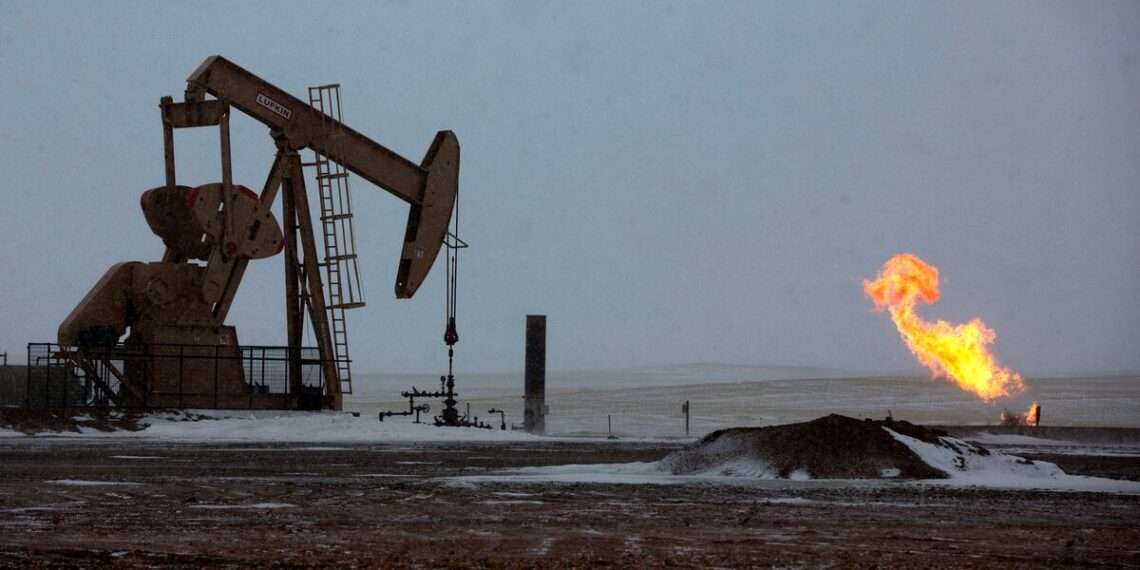The outlook for U.S. oil and gas production appears steady but cautious, with no significant increases expected despite President-elect Donald Trump’s calls for aggressive expansion.
Speaking at a London conference, Exxon Mobil Corp.’s Upstream President Liam Mallon stated that the industry remains primarily driven by economic considerations rather than political rhetoric.
“I think a radical change is unlikely because the vast majority, if not everybody, is primarily focused on the economics of what they’re doing,” Mallon remarked.
His statements align with the broader industry sentiment that profitability and shareholder returns will dictate the pace of production, rather than directives from the White House.
President-elect Trump has pledged to open federal lands for extensive oil and gas drilling as part of his energy independence agenda.
This plan seeks to reduce regulatory barriers and encourage greater domestic production, particularly in resource-rich areas.
While much of Texas, the largest oil and gas-producing state, comprises private land, neighboring New Mexico’s vast federal land holdings, including sections of the lucrative Permian Basin, present opportunities for increased drilling activity.
“If those rules were substantially changed, you would be able to drill more, assuming you have the quality and met your economic threshold,” Mallon acknowledged.
However, he expressed skepticism that the industry would embrace a frenzied “drill, baby, drill” approach.
The U.S. oil and gas industry’s measured response to Trump’s pro-drilling agenda underscores the complexities of balancing political priorities with market realities.
While Trump’s proposals to deregulate and expand access to federal lands may create opportunities, the industry’s commitment to financial discipline and shareholder returns remains the overriding factor.
Moreover, the industry’s support for elements of the IRA reflects a recognition that the energy landscape is evolving.
Incentives for carbon capture and other green technologies provide a pathway for traditional oil and gas companies to adapt to the global energy transition while maintaining their economic competitiveness.
Industry Caution Prevails

The cautious stance taken by Exxon Mobil reflects a broader trend among U.S. oil and gas producers. Companies have shifted away from rapid production growth in favor of a disciplined approach that prioritizes financial health and shareholder returns.
TotalEnergies SE CEO Patrick Pouyanne echoed this sentiment during the same conference, casting doubt on Trump’s ability to spur a drilling boom.
“Maybe he has a magic recipe to push them to drill like mad,” Pouyanne quipped. He emphasized that decisions to increase production are not solely driven by political policies but are also influenced by market dynamics and corporate strategies.
Indeed, many U.S. oil companies have adopted a long-term approach to managing their resources.
With the U.S. already producing over 13 million barrels of crude oil daily—more than any other nation and representing a 45% increase over the past decade—operators are carefully evaluating the timing of new well development to avoid market oversupply.
Mallon’s remarks also highlight a growing divergence between Exxon Mobil and Trump’s energy policies. For the second time since Trump’s election victory, the world’s largest oil company has signaled a cautious approach to his agenda.
Exxon CEO Darren Woods publicly advised Trump against withdrawing from the Paris climate agreement, advocating for U.S. participation in shaping “common sense” climate policies.
Exxon Mobil has also expressed strong support for the U.S. Inflation Reduction Act (IRA), a cornerstone of President Biden’s climate agenda that Trump has dismissed as a “green new scam.”
The IRA offers significant incentives for technologies such as carbon capture, hydrogen production, and sustainable aviation fuel—all areas that align with Exxon’s long-term strategy.
“Our position on the IRA is very good,” Mallon stated. “We strongly believe in what it is, what it stands for and the incentives it’s providing.”
While Trump’s vision of energy independence through aggressive drilling may resonate with some segments of the industry, the prevailing sentiment among major players like Exxon Mobil and TotalEnergies suggests a more cautious approach.
As Mallon aptly summarized, “I don’t think we’re going to see anybody in the drill, baby, drill mode. I really don’t.”
In the coming years, the interplay between political directives, market conditions, and corporate strategies will continue to shape the trajectory of U.S. oil and gas production, with financial prudence likely to remain the guiding principle.
READ ALSO: Russian Defense Minister Visits North Korea



















